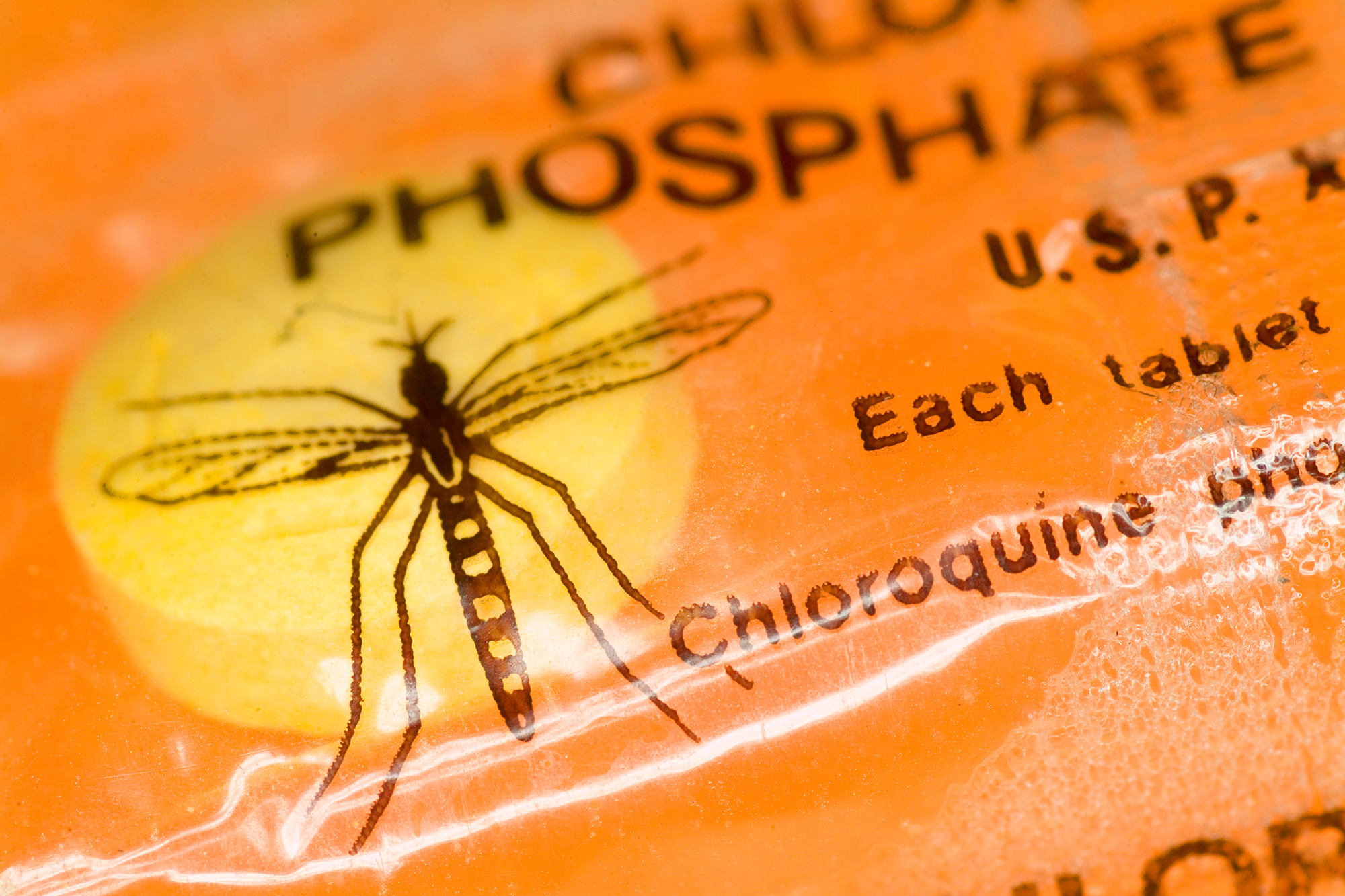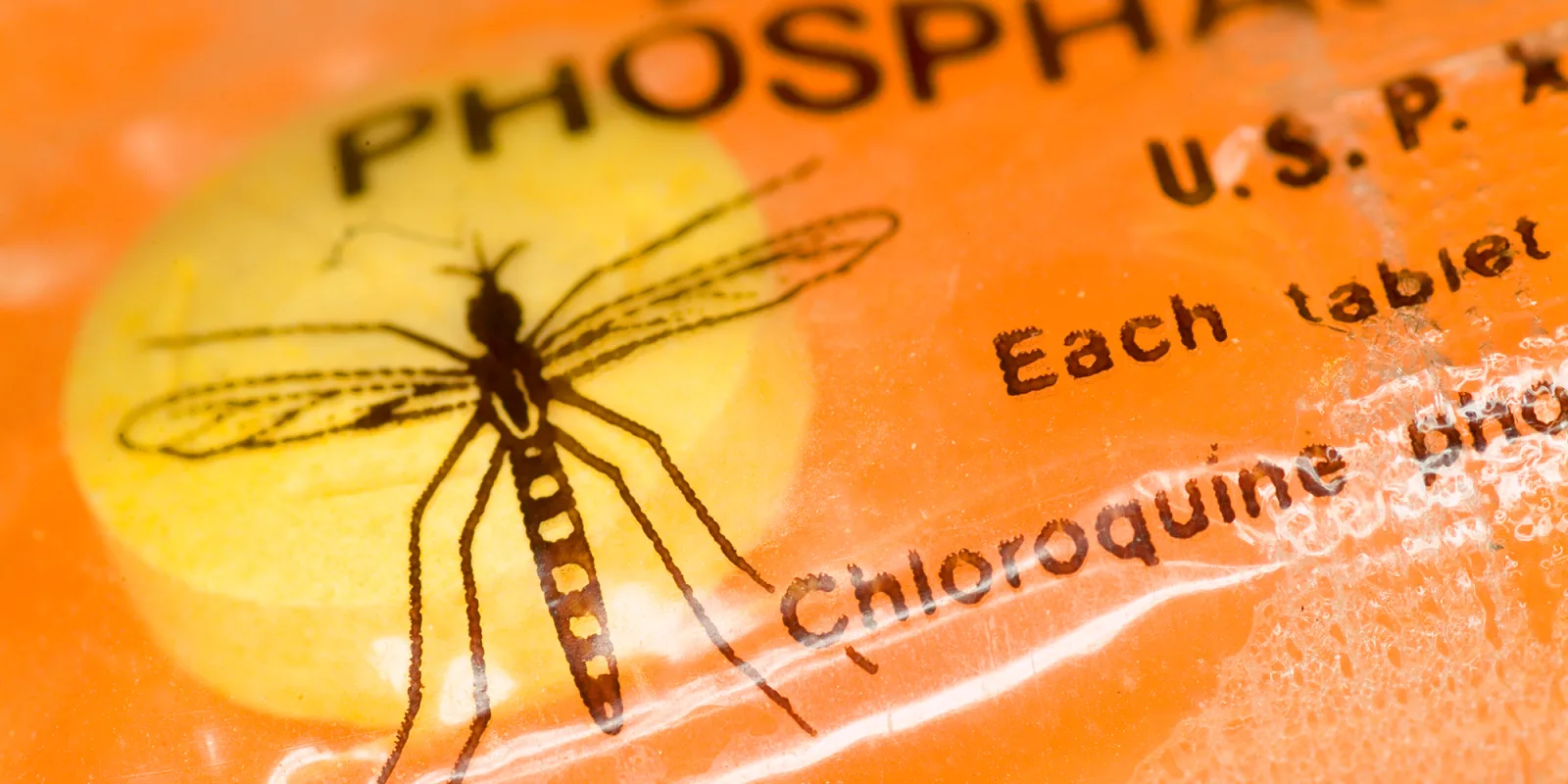
In addition to current national and preventive measures being implemented to contain and mitigate the COVID-19 pandemic, we should seriously consider using anti-malarial drugs like chloroquine (also known as chloroquine phosphate).
There is sound basic research in cellular and animal models where anti-malarial drugs have shown promise in the prevention and treatment of coronavirus infections (1, 2, 3). While there have not been any documented randomized-placebo controlled clinical trials documenting the efficacy against COVID-19 or other coronavirus infections, there is good justification to use these agents in a strategic fashion in our current circumstances.
Recently, the Department of Science and Technology of Guangdong Province and Health Commission of Guangdong Province in China recommended chloroquine in the treatment of coronavirus pneumonia based on empiric improvement in patients who developed pneumonia. Their panel recommended chloroquine for patients diagnosed as having mild, moderate, and severe cases of this novel coronavirus pneumonia and who did not have a contraindication to the medicine. Moreover, according to a consensus statement in 2014 by the WHO in response to the last outbreak of Ebola, there was general agreement for justifying the use of unproven drugs in larger clinical trials if there is laboratory and animal data that indicated such drugs were safe and efficacious. The justification for this decision was based on whether such a disease was widespread, was highly contagious, had significant morbidity/mortality, could overrun health care services and could only be evaluated during an epidemic. Clearly, COVID-19 meets that criteria.
There has been laboratory and animal data that chloroquine, has potential efficacy against coronavirus. Moreover, chloroquine is already an approved drug for malaria treatment and prophylaxis. It has decades of proven safety. There is preclinical research evidence that its mechanism of action could block coronavirus from attaching to respiratory cells and prevent viral replication once it enters cells. The only clinical trial currently being studied in the U.S. is remdesivir, an investigational drug that was used during the Ebola outbreak, but it failed. Like all investigative drug trials, there is a high attrition rate. A vaccine is unlikely to have a major impact for this current COVID-19 outbreak unless it lasts for more than a year. However, the first vaccine for COVID-19 began human trials this week. A vaccine trial could fail to show effectiveness or be too late to evaluate its impact because the outbreak will likely end by then. Moreover, vaccine trials have a 70 percent failure rate or higher.
Based on the prior history with SARS (2002) and MERS (2012), the next pandemic from coronavirus could be another 8-10 years from now, and we will be dealing with a new viral strain. At this moment, we should be giving chloroquine to frontline health care workers who will be caring for these patients. We cannot afford to have our frontline health care workers become sick as they are expected to care for the increased clinical demands that will be placed on them. Most of our critical care specialists are pulmonologists or anesthesiologists who can only devote part-time to the management of critical care. More than 75 percent of pulmonologists are over 55 years of age. There are not enough intensivists to manage a pandemic. We should also consider giving chloroquine to patients with COVID-19 who are acutely ill with COVID-19 pneumonia.
We will need to determine if anti-malarial drugs could reduce the severity of the respiratory illness which could prevent hospitalization and/or reduce a patient’s hospitalization stay. There are not enough ICU beds, ventilators, and ICU physicians in our country to care for the large number of patients who will have COVID-19 and develop respiratory failure. We will not have the luxury of performing randomized placebo-controlled clinical trials. Yet, we can still collect non-randomized prospective data on outcomes of health care workers and patients and compare those results with at least historical data from SARS and MERS or COVID-19 outbreaks from other countries. We should use available tools and resources to collect the best data now to prepare for the next outbreak of coronavirus.
Unfortunately, chloroquine is not readily available in the U.S. I recently called all my local pharmacies and hospital pharmacy and was told chloroquine was not available. I called the manufacturer who indicated that the drug is being manufactured in India and will be shipped this week for distribution. For now, chloroquine and other drugs are being considered.
Alan Moy, MD is the Director of John Paul II Medical Research Institute and CEO of Cellular Engineering Technologies.
Click here to see more perspectives on COVID-19 from the Doximity network.
Click here for up-to-date news about COVID-19 on Doximity.







